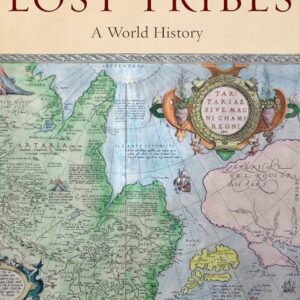In setting out to write ‘‘a brief history of ancient astrology’’ I am in effect making four initial commitments. The first, brevity, will be easy enough to meet; and if I do not meet it myself, my editors will meet it for me. The third and fourth, defining the book’s subject matter, ‘‘ancient astrology,’’ are not very difficult either. ‘‘Antiquity,’’ for our purposes, spans roughly the last century bce and the first four centuries ce. Classical antiquity is intended: that is, the culture – or cultures – of the Mediterranean basin and Europe west of the Rhine and south of the Danube in the period indicated. Politically, that vast area was unified under Roman rule; culturally, it was diverse, but the predominant form was Greek, as was the language in which cultural forms were communicated. Thus ‘‘ancient astrology’’ means essentially ‘‘Greek astrology,’’ although most of its practitioners and clients were not Greeks in any meaningful ethnic sense. Rome’s empire, to its credit, was multi-ethnic and multi-cultural. The problematic commitment is the second, offering a ‘‘history’’ of ancient astrology. Certainly one can construct narratives about aspects of ancient astrology. One can tell, in chronological sequence, the story of astrology’s reception in its host culture, particularly in official Rome where episodes of exclusion alternated with periods of grudging acceptance and unofficial toleration. In fact this story has been told – and well told – by F. H. Cramer in Astrology in Roman Law and Politics (1954). Similarly, because horoscopes are datable, one can display and comment on the extant examples in chronological order as did O. Neugebauer and H. B. Van Hoesen in their magisterial compilation Greek Horoscopes (1959). Again, one can survey the extant astrological literature and trace the author-to-author flow of influence, as the Gundels did in their Astrologumena (1966). But to write a comprehensive history of ancient astrology as an art or technique that developed in a meaningful way over time would be a dubious undertaking. Changes no doubt occurred, though astrology was an unusually conservative art and indeed is still much the same today as it was in antiquity. But meaningful development implies progress, and by what standard can we measure progress in a pseudo-science? Overall, then, there is no satisfying narrative of ancient astrology to be told. There is simply no parallel to the story of the progressive mathematical refinement and enhanced predictive power of ancient astronomy. Consequently, my ‘‘history’’ of ancient astrology will actually be something less ambitious, more in the nature of an account of various aspects of the subject, treated synchronically except where there is a tale to be told diachronically. I have centered my account on the system itself, how horoscopes were constructed and interpreted. I have also chosen to dwell on actual examples, real horoscopes given and in some instances analyzed postmortem by the ancient experts themselves. Overall I have chosen depth and detail of example over breadth of coverage. To be comprehensive in the space allowed would be impossible, and the attempt at it would lead only to the superficial and uninteresting. Inevitably scant justice or none at all will be done to some topics of secondary importance. The only one I need mention here is the ancient philosophical debate, focused mainly on the issue of fatalism, about astrology’s value and validity. However, since this topic has been well handled by others, notably by A. A. Long in his article ‘‘Astrology: Arguments pro and contra’’ (1982), it will not be missed here.
Why would one devote a book to an account of a pseudo-science, long since invalidated? That is a question I should answer at the end of my presentation rather than the beginning. I shall however indicate as we go along some of the reasons why I think ‘‘just a pseudo-science’’ is a wholly inadequate characterization of ancient astrology.
Author: Roger Beck
Format: PDF
Year: 1937
Pages: 173





Reviews
There are no reviews yet.